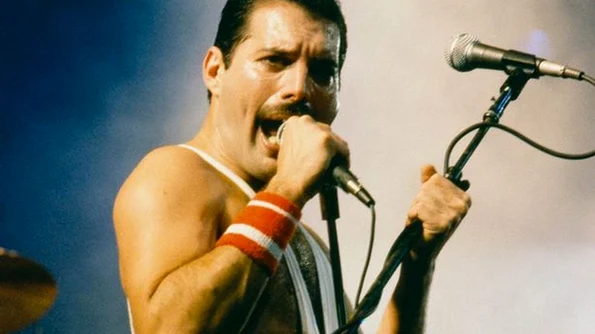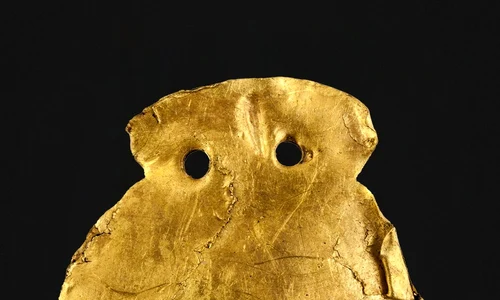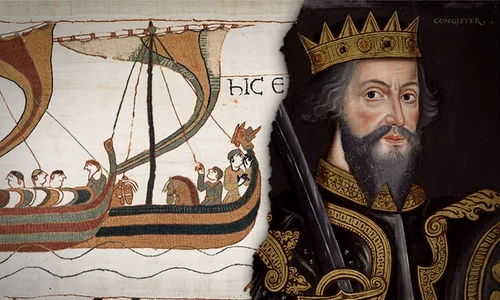
Freddie Mercury – It’s a Kind of Magic
71 years ago, on September 5th, 1946, Farrokh Bulsara better known as Freddie Mercury was born in the Sultanate of Zanzibar which was at the time a British Protectorate in East Africa. Nowadays, Zanzibar is part of Tanzania. At the age of 18, Freddie and his family moved to England and there is where the famous story of his famous collaboration with his fellow bandmates, Roger Taylor and Brian May began. Recalling his experience with Mercury, Taylor confessed that “We constantly hear about what kind of a great showman Freddie was. And sometimes it infuriates me. No, he was not a showman – he was a great musician!”
In September 1966, Freddie (as he was called by his friends at the school he attended near Mumbay/Bombay) enrolled himself at the Ealing College of Art in London where he studied graphic illustration. Mercury lived in a rented flat adorned with his sketches of his favourite artist at the time, Jimi Hendrix. His flat was strategically positioned in the Kensington area which was the hot spot of London for both the would-be artists and those who enjoyed music and other arts.
Freddie was introduced by a good friend to the Smile band composed of none others that the drummer Roger Taylor and the guitarist Brian May. Right away, he started taking voice lessons and writing songs. Chris Smith helped him practice and recounted that "the first time I heard Freddie sing I was amazed, he had a huge voice. Although his piano style was very affected, very Mozart, he had a great touch. From a piano player's point of view, his approach was unique."Freddie Mercury spoke in a baritone voice, yet mostly sang as a tenor, although his voice went from bass low to soprano and tenor high, "escalating within a few bars from a deep, throaty rock-growl to tender, vibrant tenor, then on to a high-pitched, perfect coloratura, pure and crystalline in the upper reaches”.
Yet, he joined the Smile band in 1970 when he also decided to change its name to Queen and his last name officially to Mercury. May and Taylor, the management and the label were initially not thrilled with the idea of having a group called Queen, however, Freddie said that "I was certainly aware of the gay connotations, but that was just one facet of it."Also, in 1971, Queen welcomed the bassist John Deacon and their line-up was completed. The band with its front man Freddie Mercury would become one of the greatest, most famous and admired groups in history. Their success was not limited to the English speaking world or West Europe, it went beyond to Asia or Africa. In 1975, Queen toured Japan and the group was surprised to receive such a warm welcome and that the people enjoyed their songs so much. This made Freddie collect Japanese art and antiquities for the rest of his life.
Yet, Mercury was not only a talented singer and performer who would put on the most theatrical show in pop music, he also was an amazing songwriter and composer. Freddie was the author of Queen’s first hits – Killer Queen and Seven Seas of Rhye in 1974. In 1975, he wrote and composed the very intricate and elegant “Bohemian Rhapsody.” It was the most expensive single produced at the time and continues to remain one of the best ever recorded. It had three sections which encompassed different music genres: ballad, guitar solo, opera and rock. Judith Peraino described the song as " a 'mock opera', something outside the norm of rock songs, and it does follow a certain operatic logic:choruses of multi-tracked voices alternate with aria-like solos, the emotions are excessive, the plot confusing."

Mercury himself stated that “it's one of those songs which has such a fantasy feel about it. I think people should just listen to it, think about it, and then make up their own minds as to what it says to them... "Bohemian Rhapsody" didn't just come out of thin air. I did a bit of research although it was tongue-in-cheek and mock opera. Why not?” Yet, the band refused and to this day, refuses to elaborate on its meaning, since it was and is a private matter of Freddie’s. Yet, people speculated: some thought the lyrics were made up to fit with the music, therefore, they have no particular meaning; some believed they spoke of Freddie’s relationship with Mary Austin, the woman whom he was leaving to start his first relationship with a man; others thought it might be about a man who committed suicide or somebody who is about to be executed. On the Iranian release of the song, it is stated that Bohemian Rhapsody is a story about a man who accidentally murdered somebody and sold his soul to the evil in an attempt to save himself, yet, this didn’t help him and before his own execution, asked God to give him back his lost soul.
However, nothing is certain and people still speculate about it. And most likely, this is what makes it amazing and gives its mysterious atmosphere: that you cannot help, but listen to a song which has a meaning you may never really understand. You feel it, you like it, you groove to it, but you may never find the message the composer wished to send across. Although Mercury was formally trained as a pianist, he thought his skills were not the best and thus, gradually decided to stop playing the piano live, in order to be able to move more on stage. And then he created the iconic image that would stick with us forever: Freddie with the microphone and half of its stand in his hand, singing, strutting on the stage, performing like there is no tomorrow, exuding elegance, mystery, masculinity and power. Mercury crafted his stage presence and persona to the point that he became the consummate performer. Proof of his staying power? You only need to see a drawing or a sketch of him holding the mike and you know it is the legendary Freddie Mercury. Few people in the world enjoy this level of stardom.
In 1979, he took part in a ballet show at the Royal Ballet in London. He rose up to the challenge and sang and danced live to This Crazy Little Thing Called Love and Bohemian Rhapsody. The house was packed with both music and ballet lovers and although Mercury had never taken lessons of ballet, his performance became an instant hit with the crowd. After this, in 1980, Freddie decided to alter his image: he cut his hair and grew a moustache – the iconic look that would outlive its creator. In 1982, Queen took a break and it wouldn’t be until 1985 that they would perform together again for Live Aid where they stole the show. On August 6th, 1986, Mercury performed his last show with his bandmates at Knebworth Park in the United Kingdom.

In 1980s, when he was not writing or performing with Queen, Freddie Mercury would record solo albums and write and also, perform songs with other famous singers such as Michael Jackson. From his collaboration with Jackson, it seems that three songs resulted: “Victory”, “There Must Be More to Life Than This” and “State Shock” which ultimately appeared on the Jacksons’ 1984 Victory album with Mick Jagger instead of Mercury. Yet, he would imprint his There Must Be More to Life Than This on Mr Bad Guy album. Brian May announced in 2011 that his recordings with Jackson are in the process of being publicly released, yet nothing has happened to that effect as of now. Also, Freddie wrote, recorded and performed with the Spanish opera singer Monserrat Caballe, after he was enthralled by her 1983 performance at the Royal Opera Hall. The most famous song that came out of this collaboration was the anthem Barcelona for the 1992 Summer Olympics which took place in the city mentioned in the song’s title.

In 1987, Mercury found out that the tragic news that he was ill with AIDS, yet he kept it secret up until the time he died. Although his stage presence was flamboyant and energetic, Freddie’s off-stage persona was quite different: shy and introverted, quite the same as his once recording partner, Michael Jackson. Mercury became visibly ill and made his last public appearance in 1990 to collect an award for Queen. He retired at his home in Kensington and in an effort to hasten his own death, he refused to take the pills for his HIV and resorted only to painkillers. Tragically, at the age of 45, his health deteriorated very much to the point where he would not be able to get down from bed and also, because he was gradually losing his eye sight. On November 23rd, 1991, Mercury publicly acknowledged his AIDS and on the following day, Freddie passed away. Ever since 1987, he had been under scrutiny by the paparazzi who were determined to find out whether he had AIDS or not. Mercury was stalked by them and even under great stress, refused to announce his AIDS.
After his death, his house in Kensington became “London's biggest rock n roll shrine” as described by the Time Out magazine. As of now, the walls of his house are covered in letters, graffiti and pictures to the late Freddie Mercury. In 2011, he was voted second only to Michael Jackson in the Greatest Singers poll by the popular British publication New Musical Express. In the same year, he also placed second in the Rolling Stones’ poll of Best Lead Singers of All Time, after Robert Plant. Undoubtedly and regardless of the polls, Mercury is one of the greatest singers, front men, songwriters, composers and performers of his generation.

On April 20th, 1992, a tribute concert was held in his honour on the Wembley Stadium which was attended by many famous acts such as Metallica, Def Leppard, Elton John, David Bowie, George Michael or Annie Lennox. In 1995, an album entitled Made in Heaven was released which comprised Mercury’s final recordings and outtakes from earlier session. In 1996 a statue of Freddie Mercury was revelead to the public in Montreux, Switzerland, the place where he recorded his last songs. Also, in 1999, the Royal Mail issued a stamp with a picture of him on stage as part of the Millennium Stamp series. Also, a statue of Mercury presides over the Dominion Theatre in London’s West End.
Besides his music, Mercury was very influential whereas the reception of homosexual individuals and people with AIDS was concerned. His public announcement, although late, was a turning point in the history of the disease. People came to see it as something which may happen to everybody, if they are not careful. All in all, Freddie Mercury was, in Elizabeth Taylor’s words "an extraordinary rock star who rushed across our cultural landscape like a comet shooting across the sky."
















